Politics

Prime Minister Narendra Modi held a roadshow in Gujarat after the BJP's victory in assembly elections in 4 states. Photo: Collected
All Indian political parties claim to adhere to a national consensus: political differences end at the water’s edge. But while representatives of the Bharatiya Janata Party charge their opponents with criticizing the country abroad, their own leader, Prime Minister Narendra Modi, was the first to violate the norm against doing so.
India's ruling Bharatiya Janata Party (BJP) is outraged again. On a recent visit to the United Kingdom, Rahul Gandhi - the leader of the Indian National Congress, the country's main opposition party - stated that India's democracy is under attack, and that this has global implications. Back in India, his comments triggered an uproar.
Several BJP representatives voiced outrage, characteristically exaggerated for effect. BJP spokesperson Ravi Shankar Prasad, a former cabinet minister, accused Gandhi of calling upon the United States and Europe to "interfere in the internal affairs of India," and demanded that both Congress President Mallikarjun Kharge and his predecessor, Sonia Gandhi, "disown" Gandhi's "irresponsible and shameful comments." He concluded by declaring that the BJP "would like to emphatically state with great agony that Rahul Gandhi, in his speeches, has sought to shame India's democracy, polity, Parliament, political system, and judicial system."1
Minister for Information and Broadcasting Anurag Thakur was no less melodramatic, pleading with Gandhi not to "betray" India before issuing a warning: "No one will believe the lies you spread about India from foreign soil." Thakur then tried to discredit Gandhi, calling him a "storm of controversies" who "does not lose a single opportunity to malign India," and Congress as a whole, which, by taking "local issues to the United Nations," had shown that it had "not yet come out of the thought of slavery."
This political tempest in a teacup is not merely about the exchange of barbs between the ruling party and the main opposition party (of which I am a member). It reveals a more profound fault line in India's current democratic discourse - one that will become increasingly apparent over the next year, as national elections approach.
The BJP's charge against Gandhi is a serious one. As Prasad took pains to stress, no matter which party is in power, India has always strongly opposed outside interference in its internal affairs. Ever since independence, India has been prickly about its sovereignty. After spending two centuries unable to determine their own political destinies, Indians were hyper-sensitive to any hint of meddling from abroad, especially from India's former colonial overlords and their allies in the West.
India's freedom from colonial rule became associated with its "strategic autonomy." The country reserved the right to choose its own stance on global issues. And it exercised that right, refusing to support either side in the Cold War and proudly leading the Non-Aligned Movement. This fierce independence - including aversion to lectures from foreigners on domestic affairs - united all parties in India's fractious polity. We brook no outside intervention in our sovereign right to conduct our own affairs as we wish.
This explains the potency of the BJP's accusations against Gandhi. Statements that would hardly raise an eyebrow if uttered domestically can be characterized as almost treasonous if expressed abroad - especially in Britain. The national consensus, embraced by all parties, is that India's political differences end at the water's edge.
But those railing against Gandhi for supposedly breaching this consensus ignore an inconvenient truth: the person who first committed this violation was none other than the BJP's own leader, Prime Minister Narendra Modi. During official visits abroad - starting with the US in 2014, his first year in office - Modi stunned Indians by declaring repeatedly that nothing good had happened in India over the previous seven decades. Only after his ascent to power, he said, could Indians hold their heads high abroad.
It was not only Modi's statements abroad that undermined this sacrosanct consensus. For the entire history of the Indian parliament's committee system, the External Affairs Committee was chaired by an opposition MP, in order to send the signal that the country was united on foreign-policy issues. But, in 2019, the BJP replaced the Congress MP filling that role with a BJP figure. (Full disclosure: I was the MP who was unceremoniously removed.)
It is a bit rich for BJP representatives to protest that Gandhi is violating national consensus and political convention, given that their own party has been the principal offender in this regard. It is also unjust: Gandhi selected his words carefully, precisely to avoid conveying any impression that he was seeking foreign interference in India's affairs. In fact, he stated explicitly and emphatically that the crisis of democracy facing India is "an internal problem," "an Indian problem," and "the solution is going to come from inside."
Regarding outsiders, Gandhi pointed out that, given its scale, India's democracy is a "global public good." If it collapses, "democracy on the planet suffers a very serious, possibly fatal, blow." Given this, he noted, what happens in India is important not just for Indians; it also matters to the West. "We will deal with our problem. But you must be aware that this problem is going to play out on a global scale. It's not going to play out only in India."
That hardly sounds like a plea for intervention. Instead, as Congress has argued, Gandhi was asking the world to pay attention to what is happening in India.
Indian media reported that Gandhi had wondered aloud about "why Europe and the US, the defenders of democracies, were oblivious to how a huge chunk of democracy in India had come undone." Thanks to the BJP's hysterical overreaction, if the West had not noticed before, it is sure to be aware of the problem now.
From Project Syndicate







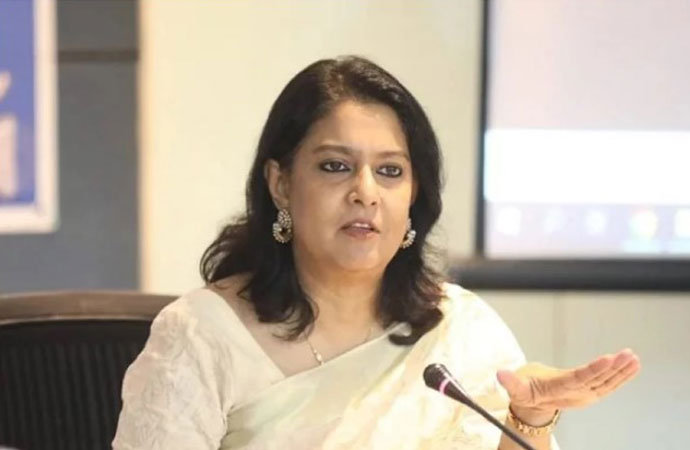











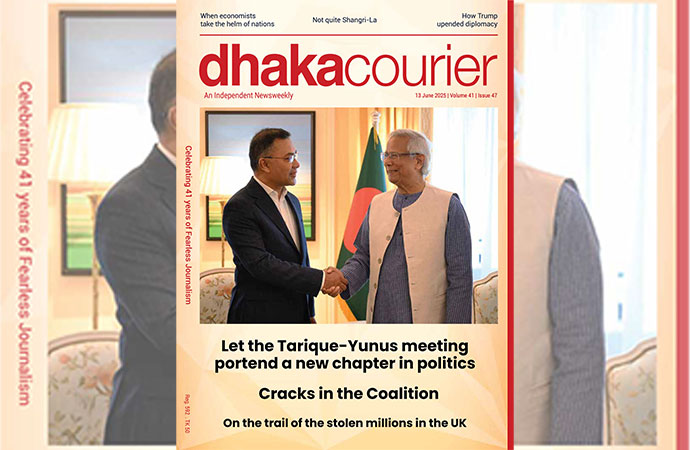
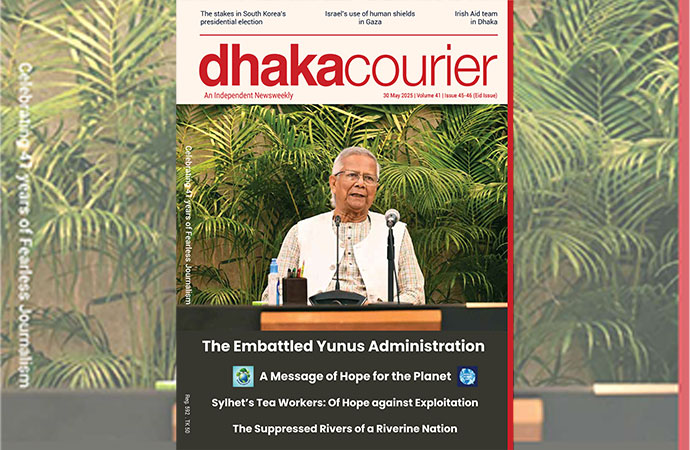

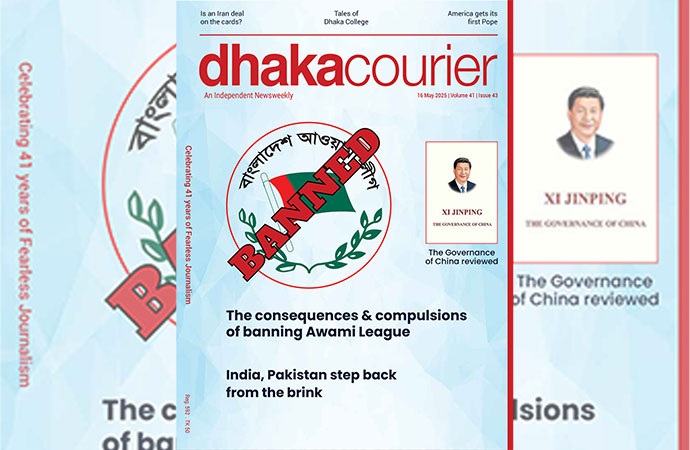
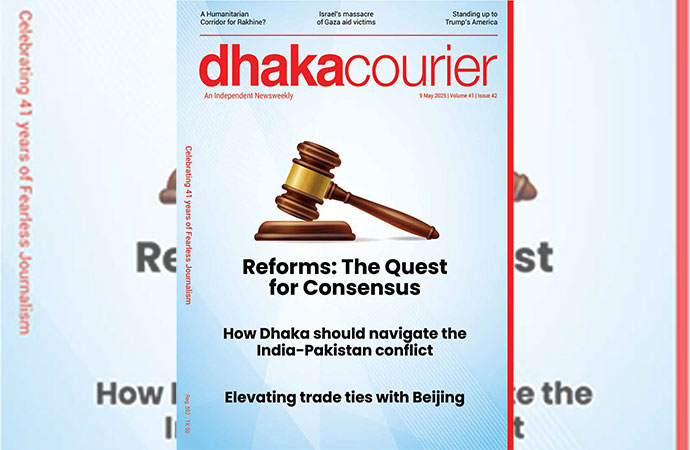

Leave a Comment
Recent Posts
Rare folk treasures at risk in ...
Amid the quiet greenery of Ulipur upazila in Kurigram, a humble tin-ro ...
Enayetullah Khan to represent ...
Enayetullah Khan, Editor-in-Chief of United News of Bangladesh (UNB), ...
The tragedy in Ahmedabad touches us all
Asset recovery a key focus; breakthroughs from talks ..
'It'll inspire youths to build Bangladesh they dream ..
UK envoy Sarah Cooke happy with Yunus’ visit to Brit ..